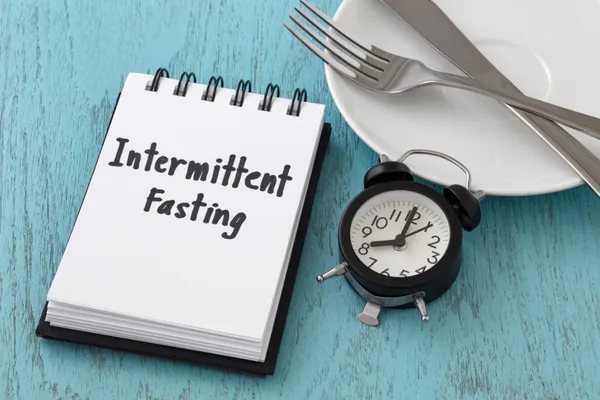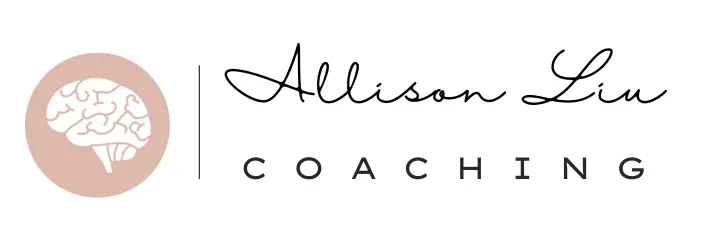
The Surprising Brain Benefits Of Intermittent Fasting
"Fasting has been proven to reduce the incidence of several diseases, as well as slowing the degeneration associated with aging, which can result in longer lifespans." - Dr Russell Blaylock, neurosurgeon, health practitioner and author of Health And Nutrition Secrets: That Can Save Your Life.
What if the way you timed your meals could sharpen your mind, boost your focus, and even protect your brain from decline as you age?
Intermittent fasting has gained a lot of attention in recent years, often linked to weight loss. But researchers are now uncovering that its benefits reach far beyond the waistline - straight to the brain.
In this article, I explain how intermittent fasting works, the fascinating science behind its brain benefits, practical tips for getting started, and why it deserves a place in your brain health toolkit.
What Is Intermittent Fasting?
At its heart, intermittent fasting is about when you eat, not what you eat. The most approachable form - and the one I recommend starting with - is time-restricted eating. This simply means eating all your meals within a set daily window, such as 7am–7pm or 8am–6pm, and fasting the rest of the time.
Why does this matter? Most of us naturally fast overnight, but by extending that fasting window a little longer (for example, delaying breakfast or finishing dinner earlier), we give our bodies and brains more time to rest, repair, and reset. Even a 12-hour overnight fast offers benefits, while being achievable long-term.
The beauty of time-restricted eating is its flexibility - it doesn’t require calorie counting, special foods, or complicated rules. You simply decide when your “eating window” starts and ends, then focus on nourishing foods during that time.
There are other popular forms of intermittent fasting too, such as the 5:2 approach (where you eat normally five days a week and reduce calories on two non-consecutive days) and alternate-day fasting. While some people find these helpful, time-restricted eating is often the easiest and most sustainable place to begin, especially if your goal is better energy, focus, and long-term brain health.
How Intermittent Fasting Supports Brain Health
You might have heard that intermittent fasting is good for weight loss, balancing the gut microbiome and reducing insulin resistance, but it also has significant benefits for the brain. By giving your body regular breaks from eating, you trigger a cascade of powerful changes that protect brain cells and sharpen your memory and focus. Scientists are discovering that fasting influences everything from how our brain fuels itself, to how it repairs, learns, and adapts. Here are some of the most exciting brain benefits that research is uncovering.
1. Cellular Repair & Brain Protection
When we fast, our bodies activate a process called autophagy - a kind of cellular housekeeping. Think of it as your brain’s spring-cleaning service. Damaged proteins and worn-out cell parts are broken down and recycled. This is especially important because the build-up of toxic proteins is linked to neurodegenerative conditions such as Alzheimer’s and Parkinson’s.
2. Reduced Inflammation & Oxidative Stress
Chronic inflammation is like a slow burn in the brain - it damages cells and interferes with communication. Fasting helps lower inflammation and oxidative stress, making brain cells more resilient to the daily wear and tear of life.
3. Boosted Neuroplasticity & Learning
One of the most exciting findings is that fasting increases levels of Brain-Derived Neurotrophic Factor (BDNF). BDNF is like fertiliser for the brain: it helps new brain cells grow, strengthens existing ones, and improves the connections between them. Higher BDNF levels are linked with sharper memory, faster learning, and protection against age-related decline.
4. Improved Energy & Mitochondrial Function
During fasting, the body shifts from burning glucose to producing ketones - a clean, efficient fuel for the brain. Ketones not only provide steady energy but also support the health of mitochondria, the tiny “power plants” inside brain cells. The result? More consistent energy and improved mental clarity.
5. Better Metabolic & Vascular Health
Your brain can't store energy, so it depends on a steady supply of glucose and oxygen, delivered through healthy blood vessels. Fasting improves insulin sensitivity, stabilises blood sugar, and supports cardiovascular health - all of which reduce the risk of type 2 diabetes and dementia. It also encourages better blood flow, which means better nourishment for your brain cells.
How To Get Started With Intermittent Fasting
If you’re curious about trying intermittent fasting, here are my top tips for making it practical - and enjoyable:
Start small: Begin by extending your overnight fast just a little - perhaps by delaying your first meal of the day by an hour or finishing dinner a bit earlier. You don’t need to overhaul your whole routine to see benefits. Even a simple 12-hour overnight fast (for example, eating between 7am and 7pm) can give your brain valuable time to rest, repair, and recharge.
Track your progress and stay consistent: Pay attention to how your body and mind respond as you adjust your eating window. Notice changes in your energy, mood, and focus. Ultimately, consistency is more important than intensity - sticking with a manageable rhythm will deliver better results than jumping into something extreme and giving up.
Stay hydrated (and settle evening cravings): Water, sparkling water and herbal teas are great during fasting hours. But if you find yourself feeling peckish before bed, don’t ignore it - going to bed hungry can disrupt sleep and make fasting harder to sustain. Instead, try having a glass of warm milk or a turmeric latte - and aim for bed within 3-4 hours of your last meal.
Prioritise nutrition: What you eat during your eating window matters just as much as when you eat. A heavy, high-carb dinner can cause your blood sugar to spike and then dip later in the evening or even during the night - leaving you restless and hungry. To support your overnight fast (and your sleep), try limiting refined carbs at dinner, choosing a smaller portion of whole grains instead. Balance your plate with good-quality protein and plenty of colourful vegetables. Another helpful strategy is to “front-load” your carbs earlier in the day, when your body can use them more effectively for energy.
Listen to your body: Intermittent fasting isn’t one-size-fits-all, so be prepared to adjust as you go. Pay attention to how you’re feeling - your energy, focus, mood, and sleep are all good indicators. If something doesn’t feel right, reflect on the points above: do you need to tweak your eating window, adjust your evening meal, or add in more nourishing foods? Small changes can make fasting more comfortable and sustainable in the long run.
Bringing It All Together
Intermittent fasting isn’t a magic bullet - but it is a powerful addition to your brain health toolkit. From boosting memory and focus to protecting against long-term decline, fasting provides a unique way to give your brain the care it needs.
The beauty is in its simplicity. Once you establish a routine that works with your lifestyle, it requires minimal ongoing effort or decision-making. It simply becomes your normal eating pattern.
Important considerations: Intermittent fasting isn't appropriate for everyone. Those with a history of eating disorders, certain medical conditions, or women who are pregnant or breastfeeding should consult with their healthcare provider before making changes to their eating patterns. As with any health intervention, individual responses can vary.






